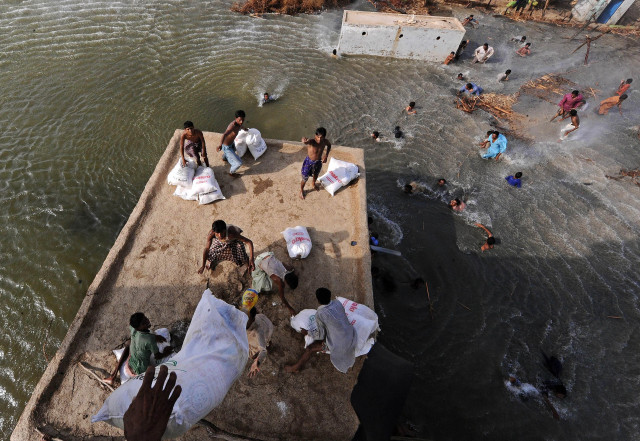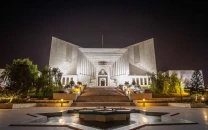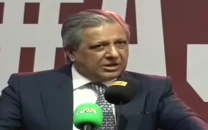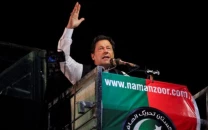More strings attached to aid
The US Treasury Department has hinted at blocking aid to Pakistan unless credibility is improved with the IMF.

More strings attached to aid
A Pakistani delegation visiting Washington was told by the US Treasury officials that in case Islamabad did not deliver on the promise of implementing the reformed general sales tax from October 1, it would not only be losing the IMF money but may also have to lose the US cash, finance ministry sources said on condition of anonymity.
The ‘informal warning’ was given during a meeting with the US Treasury Department on the sidelines of the IMF talks last month. Pakistan held the talks with the Fund from August 23 through September 2 for the restoration of the $11.3-billion bailout package. Those talks too ended inconclusively.
The veiled message was that it may be difficult for the US government to give financial assistance to Pakistan, including $1.5-billion annual civilian aid under the Kerry-Lugar Act, formally known as the Enhanced Partnership with Pakistan Act of 2009. Under the terms of the Act, Washington is to extend $7.5 billion in civilian assistance to Islamabad from 2010 through 2014.
“Improve credibility with the IMF which, in return, would help improve the government of Pakistan’s credibility in the eyes of the US Treasury Department,” the sources quoted the Treasury Department officials as saying.
The ‘strict warning’ comes at a time when political leadership is not ready to bring its act together as both the PM’s Secretariat and the finance ministry are harping on different beats. It is feared that the failure to overhaul the tax system and to implement the reformed GST may lead to tapering off of foreign inflows after October 1. The tax system overhaul, under the terms agreed with the IMF, entails taking away tax exemptions and slapping 15 per cent tax on services If the government fails to levy the reformed GST, it would be the second time it would not be honouring its commitment. Earlier, it had committed to implement the tax reforms from July 1.
The Pakistani delegation returned empty-handed after the IMF refused to approve the next tranche of $1.7 billion until Islamabad undertakes the tax reforms. The authorities also could not submit authentic statistics on account of floods impact on inflation, budget and overall economic growth, as the finance ministry and the PM’s Secretariat were giving two different set of numbers.
“No excuse, including the devastating floods, can throw the reforms agenda off track,” was the common message put out by the WB, the IMF and the US Treasury, said the sources.
“On the face of it, there is no linkage between the Kerry-Lugar money and the tax reforms,” said Asif Bajwa, special finance secretary. However, Bajwa did not deny that the US, the WB and the IMF mostly coordinate their actions on such occasions.
An official spokesman for the US embassy said it was hypothetical that the US would stop the money. He, however, added that Pakistan has assured the US government that it was undertaking economic reforms, including the tax reforms.
The outgoing US ambassador to Pakistan, Anne W Patterson, has time and again emphasised upon the tax reforms, terming it crucial for economic sustainability of Pakistan. The government is moving at a snail’s pace on enforcing the reformed GST from October 1. It has yet to conclude an agreement with the Sindh government that has taken a constitutional stance that it would not let the federal government collect the tax on services, which it says is a provincial subject. However, in order to reach an understanding it has proposed to surrender four services but the distribution formula has not been worked out.
Before October 1, the government will also have to decide about levying special flood surcharge and withdrawing tax exemptions on fertiliser. The aim is to jack up the target to Rs1.689 trillion from the revised Rs1.604 trillion. In the budget the government fixed the revenue target at Rs1.667 trillion but revised it downwards to Rs1.604 trillion.
The donors are also pressing the government hard to work out a permanent solution to the circular debt and take way all electricity subsidies. The inter-corporate debt has again swelled to over Rs300 billion, which is adversely affecting the power sector and is one of the main reasons behind power cuts. The amount is over and above the Rs301 billion that the government has parked in a holding company and is paying Rs40 billion annual interest on it.
Published in The Express Tribune, September 14th, 2010.



















COMMENTS
Comments are moderated and generally will be posted if they are on-topic and not abusive.
For more information, please see our Comments FAQ